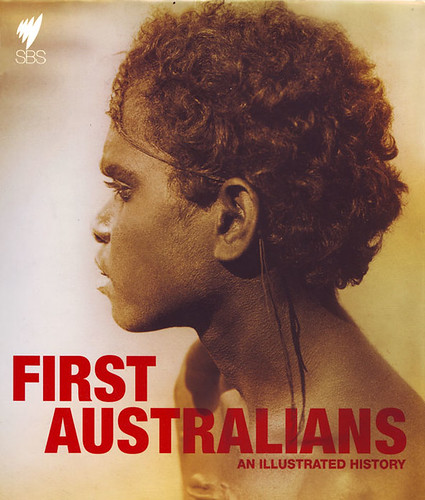
The indigenous people of Australia have been subjected to genocide and national discrimination for centuries. Recently the United Nations Human Rights Commission condemned the government for racism., a photo by Pan-African News Wire File Photos on Flickr.
UN slams Australia for apartheid, racist policies
Wednesday, 25 May 2011 19:59
SYDNEY.
THE United Nations' top human rights watchdog has attacked Australia's tough refugee policies and the treatment of outback Aborigines, saying there was a strong undercurrent of racism in the country.
According to UN Human Rights Commissioner Navi Pillay, long-standing policies of locking up asylum seekers had "cast a shadow over Australia's human rights record", and appeared to be completely arbitrary.
"I come from South Africa and lived under this, and am every way attuned to seeing racial discrimination," she said.
UN Human Rights Commissioner Navi Pillay claims that the Australian government does not do enough to support Aborigines, who make up 2 percent of the population
The 69-year-old is a former anti-apartheid campaigner and international criminal court judge, and she was speaking to reporters at the end of a six-day visit.
"There is a racial discriminatory element here which I see as rather inhumane treatment of people, judged by their differences, racial, colour or religions," she said yesterday.
Before she left Pillay held talks with Prime Minister Julia Gillard and expressed deep concern about the minority Labour government's latest plan to send hundreds of asylum seekers to Malaysia for refugee processing, hoping to appease voter concern about asylum seekers arriving by boat.
Navi Pillay said that Australia's long-standing policies of locking up asylum seekers had "cast a shadow over Australia's human rights record".
Australian Prime Minister Julia Gillard is unlikely to change her policies, critics fear
Why has Australia been labelled racist?
A tough approach to immigration is not the sole reason why Australia has been deemed racist by the UN.
The belief that the country is "unusually racist" goes back to the late 1700s when European settlers forced the indigenous population into neighbouring territories.
From 1869 until the 1970s the idea was further compounded when Australian Aboriginal and Torres Strait Islander children, dubbed The Stolen Generations, were taken away from their families by the state.
From 1901 to 1973 the White Australia policy restricted "non-white" immigration into the country.
More recently, in the late 1990s, politician Pauline Hanson courted controversy by saying that "a multicultural country can never be a strong country".
She also complained that Australia was in danger of being "swamped by Asians", and that immigrants ‘have their own culture and religion, form ghettos and do not assimilate'
The racially motivated 2005 Cronulla riots saw 5 000 people protesting against alleged assaults by groups of Middle Eastern looking youths from the suburbs of South Western Sydney.
And in 2009 Indian students held mass protests against what they claimed were a series racist attacks.
The government has been struggling to handle the flow of illegal immigrants and earlier this month said it had struck a deal with Kuala Lumpur to ensure asylum-seekers caught heading to Australia would be sent to Malaysia, which is not a signatory of the UN refugee convention.
More than 900 people, mostly from Afghanistan, Iraq, Iran and Sri Lanka, have arrived in Australia so far this year.
A total of 134 boats carrying 6 535 people turned up last year, prompting the government to harden immigration policy.
While Pillay's criticism may cause Australia some discomfort internationally, it is unlikely to convince Gillard or her conservative political opponents to change tack, given polls showing wide voter concern about border security.
She also criticised an ‘intervention' policy.
It was introduced by the former conservative government and continued by Gillard.
It places controls on welfare spending for Aborigines to help fight alcohol and child sex abuse in remote outback areas. - Daily Mail.
No comments:
Post a Comment